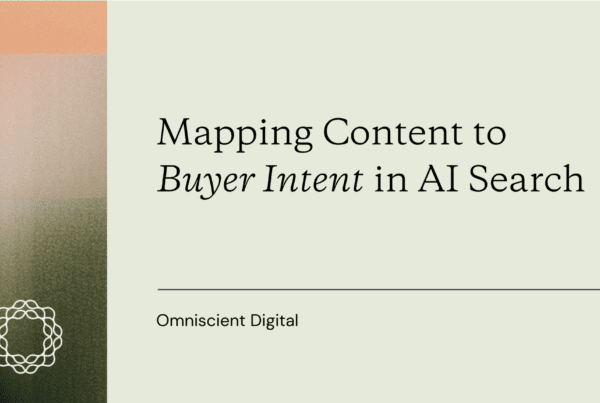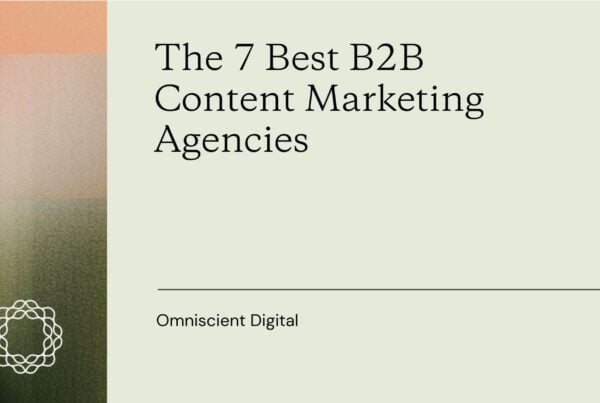
Regardless of where you start, at some point you’ll start to think less about just getting by and more about what you want out of your career.
There are many different ways to start a marketing career, from juggling multiple hats at a tiny startup to honing a specialty at a large company.
Ty Magnin has gone from fast-paced startups to Director of Marketing at UiPath, a large global company.
He chatted with me about the advantages and disadvantages of startups versus established organizations, the process of building a talented team, and the importance of finding a sense of purpose.
Weigh startup life versus an established company
When you’re first starting out in content, you’ll be hungry to get into a role that will give you the chance to learn and prove yourself.
Small startups and large companies each have their pros and cons.
One of the greatest benefits of working for a startup is how you immediately feel essential to the mission of the company.
“When you’re in that entrepreneurship mode and you’re one important member of a small team, you have a lot more on your shoulders,” Ty said. “You kind of do burn the midnight oil or work around the clock or put in a little bit more in order to make that successful,” he said.
That engagement is part of the nature of a startup where everyone has to carry extra weight to get it all done. You may find yourself with loads of responsibility, from scaling a team to finding new channels to focus on.
Meanwhile, a large company also has great learning opportunities in the form of mentors.
“I joined a big company, yes, to learn because I wanted to work alongside as many CMOs as I could,” he said. “At UiPath, all the marketing leaders there have been a CMO somewhere else before.”
Learning from top talent can be an excellent education in and of itself. The type of learning experience you pursue should depend on your work ethic, personality, and goals.
Learn how to build a team
Whether you work up the ranks at a large company or chart your own path at a startup, at some point you’ll start being asked to hire people to fill out your team.
That process is a lot harder than it seems.
Ty’s hard-won advice is to take the time to figure out exactly what you need the person in that role to do before you start interviewing.
“Taking the time to write out what you’re looking for,” Ty said. “What you really need this person to do, what you’re okay with them not being great at.”
Look at the position from many different angles and get a clear idea of what you need.
“I’ll be honest,” he said. “Sometimes I enter a hiring process and I’m not a hundred percent sure of what I want.”
In those cases, he asks for advice from people who have worked closely with that type of role before so he can get a better understanding of what a qualified candidate looks like.
“Ideally you have all that work done up front and then the process goes smoother,” he said. “I definitely wasted some candidates’ time that were probably unqualified,just because I wasn’t sure what I wanted.”
Hire based on proven track record
The best way to hire someone that will deliver results? Fnd someone who has done it before.
“One thing that I wish I’d done earlier in my hiring would be, and I do it now consistently, would be to basically evaluate someone based only on their experience, not on what they say,” Ty said.
Ty now asks questions about a candidate’s prior roles, how they were measured on performance, and how they ultimately performed.
“Basically you’re hiring someone that is able to consistently overachieve on their goals,” he said.
You’ll need to follow up with references to make sure their statements are accurate, but focusing on results over likeability ensures that you’ll end up with a team member who meets or exceeds expectations.
“I think that where I’ve made some hires that were not a great fit is where I sort of hired someone based on what they said on how interested they were in the role, on how good of a culture fit they were, not based on previous success in a similar role,” he said.
Can’t afford experience? Look for hunger
Of course, startups and smaller companies often don’t have the budget to hire someone with rich experience.
In that case, look for the hunger to achieve. Ty and I both credit our hunger and potential to grow as the reason we got our first jobs.
“I think if you’re at a young company and budget is a constraint and the risk factor’s really high, you can sometimes hire for potential,” Ty said.
A younger person who wants to be a part of your company and has the drive to work hard can be a good choice.
“The people that are like, ‘Hey, I’m willing to sleep on a street in order to get a spot at this company’ or whatever it is often are the people that will just do whatever it takes and flex themselves into whatever role they think they can have the most impact,” he said.
“I think you kind of have to look for that scary level of hunger.”
Balance career growth with meaning
Fueling that hunger into getting ahead when you’re starting out can reap big benefits.
Working long hours and spending your spare time learning can let you leap ahead of your peers and get into the thick of a career faster.
But you’ll reach a point where that pace isn’t sustainable and you’ll want something more.
Now in his thirties, Ty has started to wonder what he wants beyond a paycheck. He’s approaching this next phase of his career as a chance to improve himself across his life, not just in his work.
“It’s just like that next level of meaning,” Ty said. “It’s food, shelter, whatever else, and then it’s purpose.”
He’s reading books and working with a life coach. Ideally, those improvements will have positive effects both personally and professionally.
“Maybe it will help pay dividends and bring me to the next level of my career,” he said. “I hope I’ll become someone that people enjoy working with that much more.”
Approach leadership as a journey
As you’re defining your purpose, building your teams, and honing leadership skills, it’s important to explore how to lead effectively. By focusing on clear communication, empathy, and collaboration, you can inspire your team and create a positive work environment that drives success.’
Decision-making frameworks, communication skills, and business management expertise are important, but so is self-improvement and leadership development.
Ty sees it as a never-ending journey: one where he is constantly evolving into his best self.
“At the end of the day, I think that when I consider my leadership journey, I’m thinking more about how can I evolve myself to be someone that is more kind of sticky, attractive, effective in a business environment,” Ty said.
Whether you go the startup route, fit yourself into a large company, or something in between, you’ll have multiple chances to challenge yourself and find your purpose along the way.


